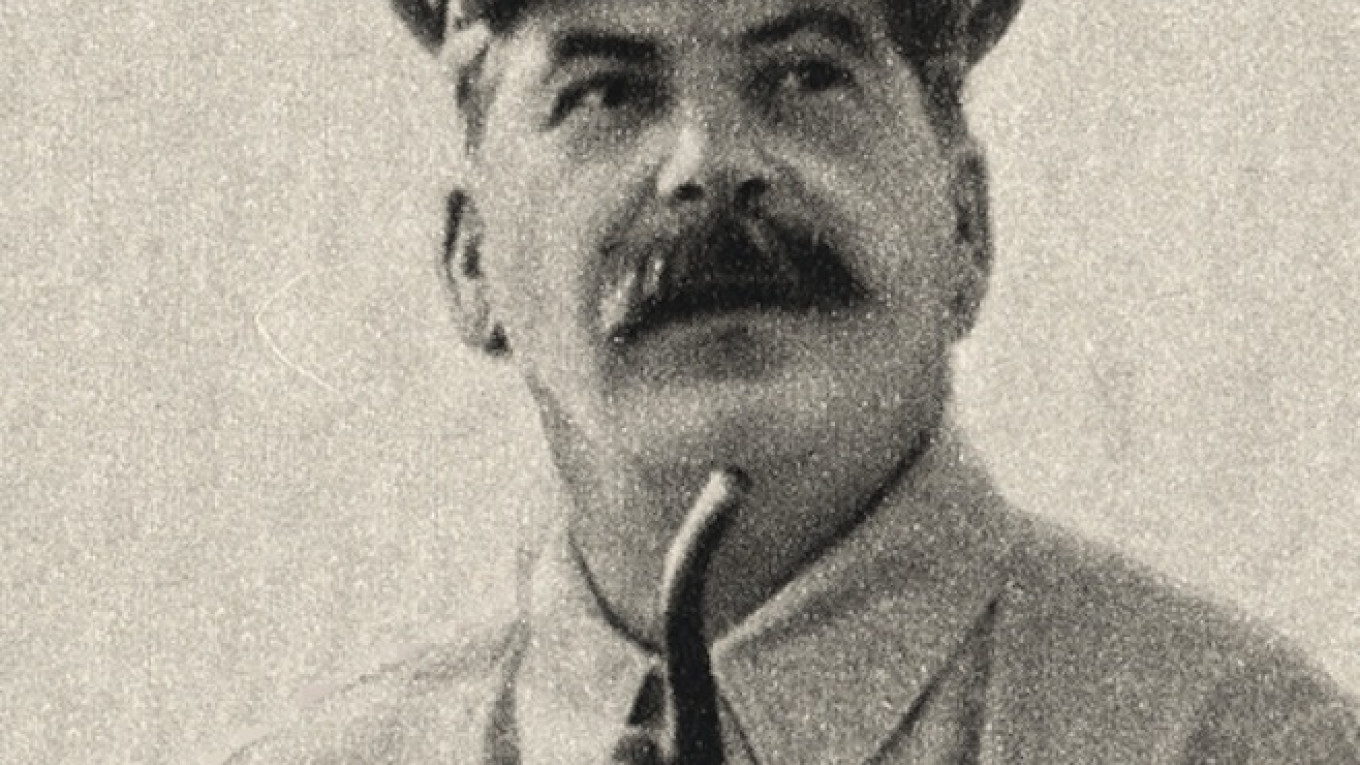Nearly half of all Russians think the sacrifices made under dictator Josef Stalin were justified by the Soviet Union's rapid economic progress during his rule, a poll published Tuesday showed, reflecting a boost in Stalin's popularity in recent years.
Forty-five percent of those questioned by independent pollster the Levada Center said they definitely or to some degree thought that the sacrifices made by the Soviet people under Stalin's rule were justified in light of the country's rapid development. Two years ago, that figure stood at only 25 percent, according to the report.
The pollster also found that while a large number of respondents (46 percent) thought Stalin's death put an end to mass repression and terror, that figure was higher (56 percent) two years ago. During that same period, the number of Russians who saw Stalin's death as a great loss grew from 18 percent to 24 percent.
In a summary of its findings, the Levada Center said its latest poll indicated a growing shift in public perceptions of Stalin since the turn of the 21st century.
"If the prevailing attitude toward [Stalin] was negative at the start of the millennium, now a large proportion of respondents (39 percent) now evaluate him positively," the Levada Center said. While 25 percent said they viewed the Soviet leader negatively, a further 30 percent identified their feelings as neutral, the pollster added.
A Levada Center analyst said the findings were the result of the policies of the current government.
“[Stalin is being rehabilitated because] the current Russian authorities and [President Vladimir] Putin in particular seek the legitimization and justification of their actions by resorting to the past. It gives them a certain endorsement,” Alexei Levinson, head of the Levada Center's social and cultural studies department, told The Moscow Times on Tuesday.
“There are two consequences of that: On the one hand, the state might triumph in the further consolidation of its power. On the other hand, we are engaging in a conflict with the rest of the world and our regime will not last long under such pressure,” he said.
The head of Memorial, an NGO whose activities include campaigning for the rehabilitation of victims of Stalin's repression, expressed concern over the poll's findings.
“It is a very alarming sign. It is telling not only in terms of attitudes to Stalin but in terms of the relationship between the individual and the state. Stalin is perceived as a symbol of a powerful and mighty nation, and the fact that he and all his policies were anti-human remains a secondary consideration,” Arseny Roginsky was quoted as saying by Interfax on Tuesday.
Roginsky called for prioritizing human rights and interests over the state, warning that the alternative would not bring any positive outcome for Russia.
The center's findings come after Communist Party members earlier this month called for streets to be renamed and monuments to be erected to Stalin throughout Russia ahead of celebrations in May marking 70 years since the Soviet victory over Nazi Germany, the Kommersant newspaper reported.
Asked by the Levada Center how they felt about the initiative, 39 percent of Russians said they would back plans for erecting a monument to Stalin, who was supreme commander in chief of the Soviet army during World War II.
Russian industry grew rapidly under Stalin, who ruled the Soviet Union from 1924 to 1953. But in the West the Georgian-born leader is mostly known for overseeing a reign of terror in which millions of people were murdered or forced to work in labor camps.
The Levada Center poll was conducted between March 20 and 23 among 1,600 respondents in 46 different Russian regions. The margin of error did not exceed 3.4 percent.
A Message from The Moscow Times:
Dear readers,
We are facing unprecedented challenges. Russia's Prosecutor General's Office has designated The Moscow Times as an "undesirable" organization, criminalizing our work and putting our staff at risk of prosecution. This follows our earlier unjust labeling as a "foreign agent."
These actions are direct attempts to silence independent journalism in Russia. The authorities claim our work "discredits the decisions of the Russian leadership." We see things differently: we strive to provide accurate, unbiased reporting on Russia.
We, the journalists of The Moscow Times, refuse to be silenced. But to continue our work, we need your help.
Your support, no matter how small, makes a world of difference. If you can, please support us monthly starting from just $2. It's quick to set up, and every contribution makes a significant impact.
By supporting The Moscow Times, you're defending open, independent journalism in the face of repression. Thank you for standing with us.
Remind me later.


